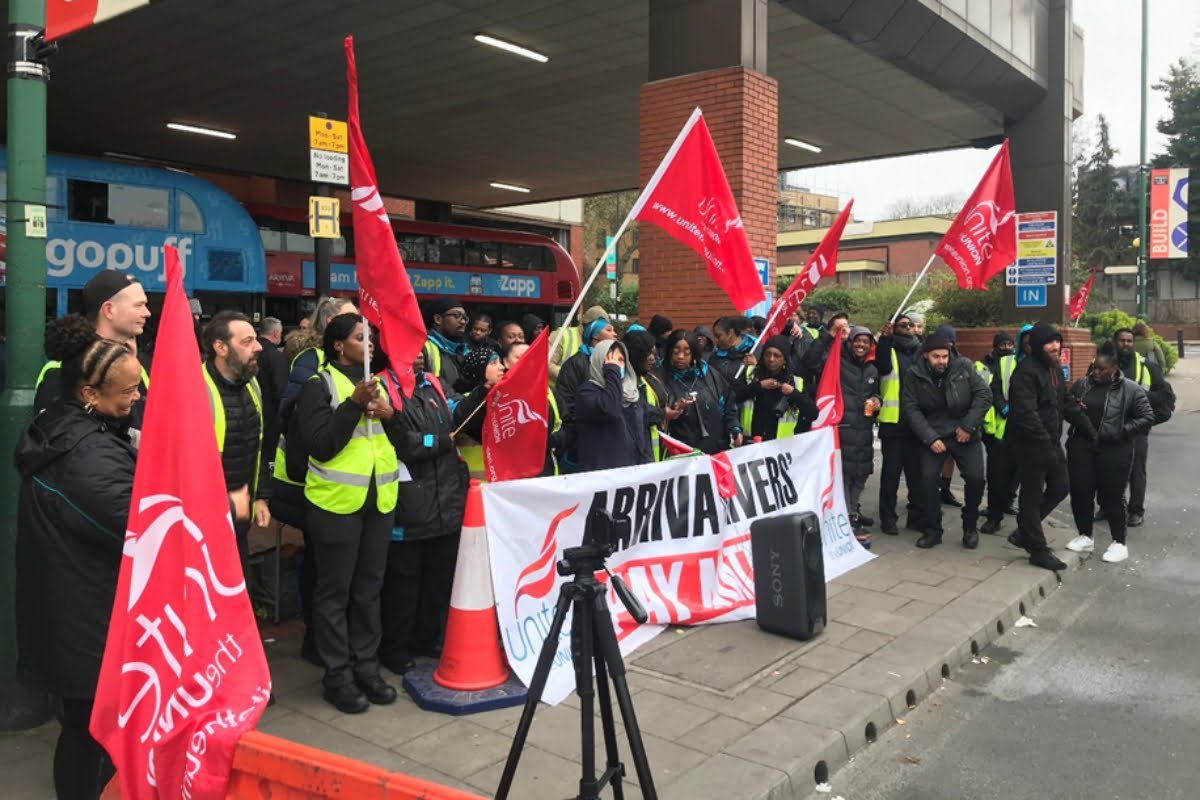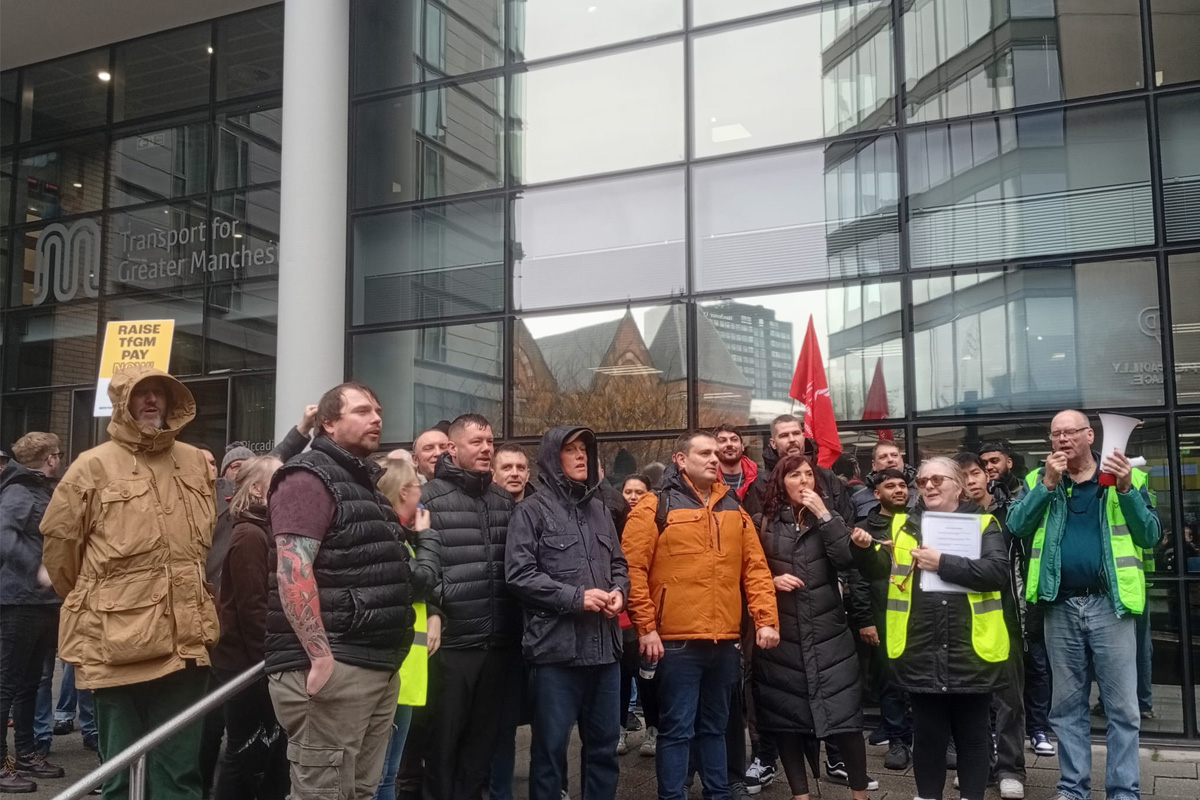Bus drivers in West London – organised in Unite – were out on strike earlier this month, on 10 and 13 November. And further strike days are planned for 1, 4, 22, and 23 December.
This follows the decision by London Transit, owned by French multinational RATP, to impose a 6.8% pay offer. This amounts to a 4.6% real-terms pay cut.
The bosses are also attacking workers’ conditions. This includes the removal of a £500 meal-relief payment, and changing arrangements for how workers take days off. This is despite RATP reporting profits of €193 million last year.
Driver shortages in London are so severe that hundreds of buses are cancelled every day. Nine bus routes are set to disappear entirely under the latest TfL budget cuts. In addition, 1,000 London buses have been cut from the fleet since 2017.
TfL data shows that bus performance reliability in its network has deteriorated below the levels seen before the pandemic. Meanwhile, fares keep going up. This is despite the fact that TfL has reported an operating surplus. Where is all this money going?
It’s time the books were opened up. Workers’ committees should be formed to check the companies’ finances, to see how much money they’re syphoning off.
As they take the fight to the bosses, drivers can take further strides. This strike should form a springboard for a militant campaign to renationalise the bus networks, in London and across the country.
This time, bus routes must be placed under the control of the workers – those who know best. That would give us a transport system to be proud of.






